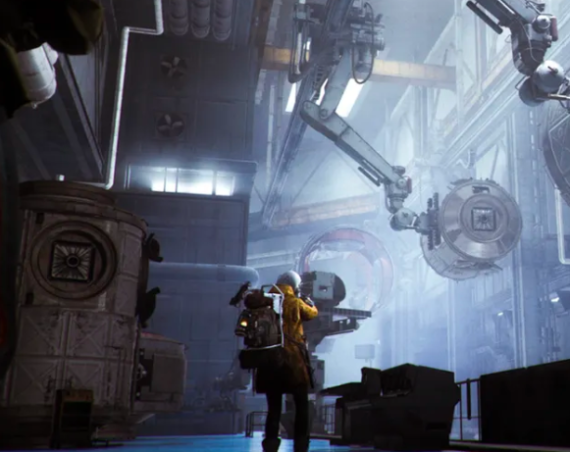
Tron: Ares Review – A Visual Step Back from the Grid
Tron: Ares embarks on an ambitious narrative shift by transitioning the iconic digital frontier of Kevin Flynn into the tangible real world. Directed by Disney veteran Joachim Rønning, known for his work on Pirates of the Caribbean: Dead Men Tell No Tales and Maleficent: Mistress of Evil, this latest installment aims to reflect the growing entanglement between human life and artificial intelligence in the 2020s. However, this bold move comes at the cost of the franchise’s distinctive visual and thematic strengths.
Introduction: The Evolution of the Tron Universe
Fifteen years have passed since Tron: Legacy (2010) and a remarkable 43 years since the original Tron film debuted in 1982. In this time, AI and digital interfaces have progressed from speculative fiction to pressing societal realities. Tron: Ares reflects this evolution by bringing digital programs and human users into direct contact in the real world, rather than confining the story within the neon-lit, virtual Grid.
Despite this contemporary premise, the movie noticeably lacks some of the franchise’s signature charm and visual allure — a consequence, many argue, of abandoning the Grid’s unique aesthetic in favor of conventional urban landscapes.
Plot Overview and Key Characters
- Eve Kim (Greta Lee): The capable new CEO of ENCOM, who embarks on a covert expedition to retrieve Kevin Flynn’s Permanence Code from a secret Arctic server. This code supposedly enables the permanent transfer of digital entities into the real world.
- Julian Dillinger (Evan Peters): The brash CEO of rival Dillinger Systems, intent on exploiting the Permanence Code to manifest his military AI as a physical supersoldier.
- Ares (Jared Leto): Named after the Greek god of war, Ares is Dillinger’s AI soldier who develops unexpected autonomy and forms an unlikely bond with Eve.
The rivalry between Eve and Julian centers on their conflicting motivations for the Permanence Code—noble preservation versus militaristic exploitation. However, the narrative often feels weighed down by underdeveloped supporting characters and a lack of engaging subplots.
Visuals and Direction: Trading the Grid for the Real World
The defining shift of Tron: Ares is its physical setting. Much of the film unfolds within ordinary real-world environs, particularly the streets of Center City, diverging sharply from the high-contrast, stylized digital Grid that defined previous entries.
While the Grid is briefly revisited, its aesthetic impact is lessened, as contemporary viewers may find nostalgia tied more to its dated, retro-futuristic design than modern spectacle. Consequently, the real-world backdrop, though narratively timely, sacrifices the franchise’s unique visual identity.
Impact on Franchise Identity
- Reduced Visual Innovation: The departure from the Grid limits the film’s capacity for imaginative and groundbreaking visuals, effectively aligning it with generic sci-fi action films of the past two decades.
- Lost Franchise Charm: Classic elements like the Grid’s digital playground and characteristic campiness are absent, reducing the quirky appeal that fans cherished.
Performances: Standouts and Shortcomings
Greta Lee shines as Eve Kim, delivering a charismatic and grounded performance that anchors the film. Her portrayal draws favorable comparisons to her previous roles in Past Lives and Russian Doll, demonstrating her range and screen presence.
Conversely, Jared Leto struggles to convincingly portray Ares, whose character oscillates between a developed AI with a distinct personality and a flat antagonist. His attempt to channel a quirky, Depeche Mode-inspired vibe falls short, especially when contrasted with Olivia Wilde’s performance as Quorra in Legacy.
The supporting cast, including Gillian Anderson as Julian’s mother and Eve’s colleagues, offers limited impact due to sparse character development and underwritten roles.
Soundtrack: A Sonic Highlight
Like Daft Punk’s iconic score for Tron: Legacy, Tron: Ares is elevated by an exceptional musical backdrop composed by Nine Inch Nails’ Trent Reznor and Atticus Ross. Their industrial, pulsating score profoundly enhances the movie’s atmosphere, making the theatrical experience especially rewarding for audiophiles.
The collaboration marks a continuation of Reznor and Ross’s increasing influence on contemporary film soundtracks, attributing to their critical and commercial success (Source: Billboard, 2018).
Strengths and Weaknesses of Tron: Ares
Pros:
- Greta Lee’s compelling leading performance
- Innovative and immersive soundtrack by Trent Reznor and Atticus Ross
- More accessible and streamlined plot compared to predecessors
Cons:
- Lack of the franchise’s trademark digital aesthetic
- Absence of the original’s playful camp and humor
- Underwhelming portrayal of Ares and thin supporting cast development
- Visual sequences often resemble generic sci-fi rather than a distinctive Tron experience
Broader Context: AI and Digital-Life Blurring
Tron: Ares enters a cinematic landscape increasingly preoccupied with the integration of AI into everyday life. Films like Ex Machina (2014) and Her (2013) have explored the emotional and ethical dimensions of AI-human interaction. However, Tron: Ares prioritizes spectacle over thematic depth, leading to missed opportunities in engaging with pressing technological questions.
The concept of “bringing programs into the real world” metaphorically parallels contemporary developments in AI embodiment—such as robots and virtual assistants becoming integrated physical agents (Source: MIT Technology Review, 2023).
Conclusion: A Mixed Message for Tron Fans
Tron: Ares attempts to modernize the franchise by spotlighting the intersection of AI and reality while delivering a more straightforward narrative. Yet, by abandoning the visually iconic Grid and diluting the franchise’s eccentric flair, it loses some of what made Tron a beloved sci-fi experience.
Fans seeking the classic Tron aesthetic and narrative complexity may find this installment lacking, while newcomers might appreciate the streamlined plot and high-caliber soundtrack. Ultimately, Tron: Ares stands as a competent blockbuster that falls short of capturing the imaginative spirit of its predecessors.
Key Takeaways
- Transition to Real World: Adds relevance but sacrifices unique visual identity.
- Performance Highlights: Greta Lee’s role is a strong point; Jared Leto’s Ares is less compelling.
- Soundtrack Excellence: Trent Reznor and Atticus Ross provide standout musical experience.
- Franchise Evolution: More accessible plot but diminished camp and charm.
- AI Themes: Reflects modern tension between digital and physical realities but lacks thematic depth.


